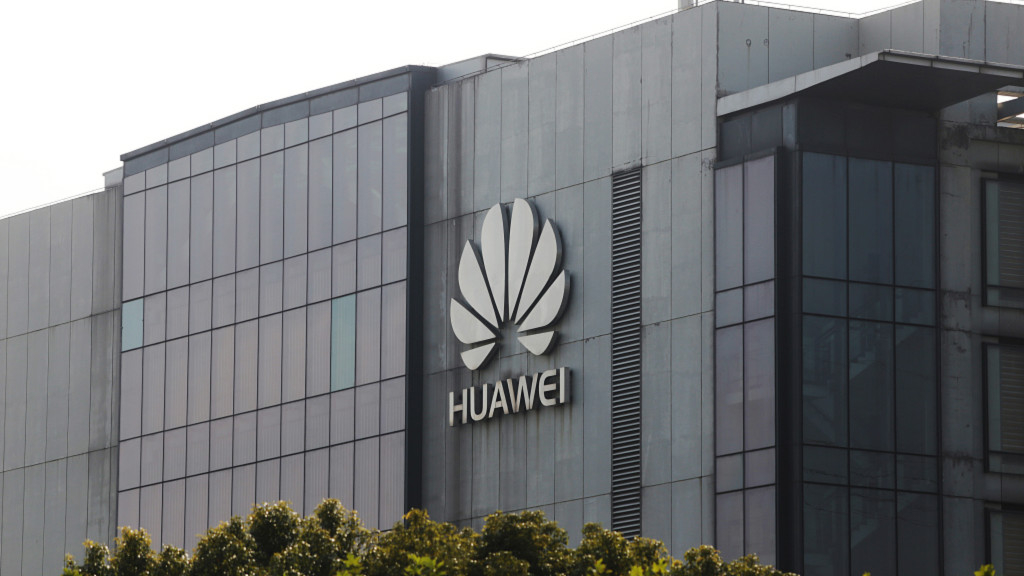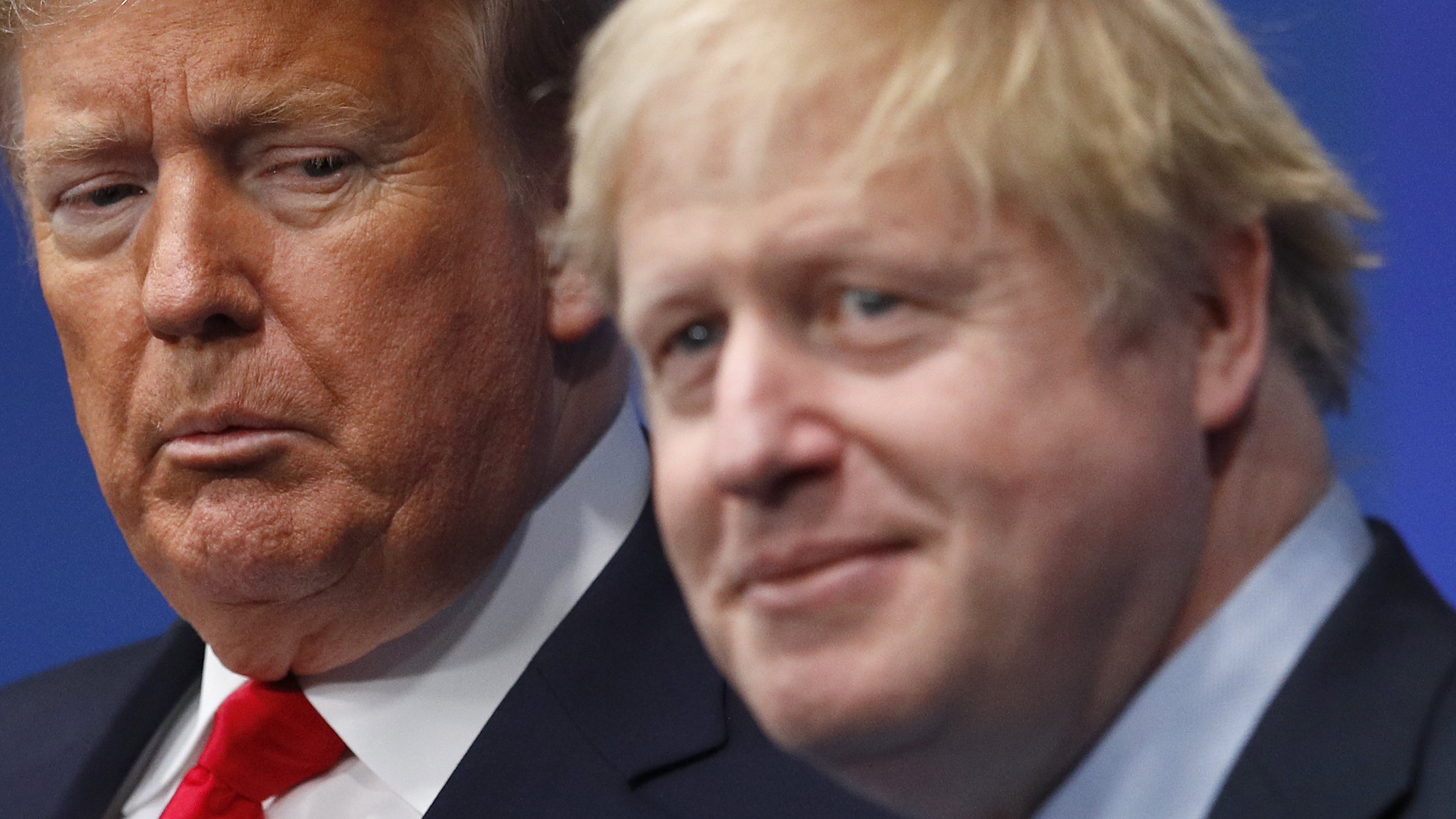
Editor's note: Chris Hawke is a graduate of the Columbia Graduate School of Journalism and a journalist who has reported for over two decades from Beijing, New York, the United Nations, Tokyo, Bangkok, Islamabad and Kabul for AP, UPI and CBS. The article reflects the author's opinions, and not necessarily the views of CGTN.
The U.S. has extended a temporary export waiver for Huawei, but is tightening its noose around the Chinese telecom giant's business interests through intensified legal action and increased diplomatic pressure.
The moves come as the "Phase One" trade agreement negotiated between the two countries come into effect, and highlight the need for further talks to resolve their outstanding trade issues, which revolve around intellectual property protection and the role of government in supporting industry. These issues are also at the heart of the conflict over Huawei.
The U.S. claims Huawei is a security threat, while China maintains the U.S. is using diplomatic and legal pressure to make up for its lack of competitiveness. Huawei has no U.S. competitors in the field of 5G telecom infrastructure.
The U.S. Department of Commerce on Friday announced it would extend the waiver that allows Huawei to purchase any U.S. products it needs to continue supplying rural internet providers in the U.S. However, the extension is only for 45 days, unlike previous 90-day extensions. The Commerce Department says the extension is intended "to allow time for companies and persons to shift to alternative sources of equipment, software and technology (i.e., those not produced by Huawei or one of its listed affiliates)."
Ratcheting up pressure, on Thursday, the U.S. unsealed an indictment accusing Huawei of racketeering and conspiring to steal trade secrets from American companies, including source code and wireless technology manuals. In addition, on Tuesday, U.S. National Security Adviser Robert O'Brien, said Huawei can secretly access sensitive information in systems it maintains around the world.
Huawei denies the allegations. The Wall Street Journal reported that a senior Huawei official said, "The use of the lawful interception interface is strictly regulated and can only be accessed by certified personnel of the network operators. No Huawei employee is allowed to access the network without an explicit approval from the network operator."
Huawei now faces major obstacles to selling its 5G infrastructure in the West due to unrelenting pressure from the United States.
British Prime Minister Boris Johnson, for example, is facing unprecedented pressure to reverse a recent decision to use Huawei equipment only in noncritical sectors. The Financial Times reports President Donald Trump was "apoplectic" with rage when Johnson called him to explain the decision. Trump's domestic arch-nemesis Nancy Pelosi is also supporting Trump's stance on Huawei. A high-level group of U.S. officials is reportedly traveling to London this week to appeal to Johnson to reconsider his Huawei decision. Australian MPs cancelled a planned trip to the UK amid tensions over the role of Huawei in Britain.

The U.S. has warned the UK against using Huawei. /AFP Photo
The U.S. has warned the UK against using Huawei. /AFP Photo
The "Phase One" trade agreement between China and the U.S. came into effect on February 14. However, this agreement left the contentious issues that are encapsulated in the Huawei dispute to be resolved in the future, presumably after the next presidential election.
Huawei, for its part, rejects the U.S. charges against it. In a statement, it said: "For quite a while, the U.S. government has been using the strength of an entire nation to come after a private company. It has used every tool at its disposal, whether they be legislative, administrative, judicial, or diplomatic, and has even tried to turn public opinion against Huawei to disrupt our normal business operations."
Time will tell whether the U.S. charges have merit or not. Huawei expressed confidence they will not, saying, "We believe that the court will make a fair ruling based on facts and evidence."
Muddying the waters is Trump's politicization of the Justice Department, which is increasingly being seen as a partisan tool. This raises the possibility that Wednesday's indictment is as much a political document as a legal one.
Increasing this suspicion, U.S. Attorney General William Barr on Thursday suggested that the U.S. either directly or through a consortium of private American and allied companies take an ownership stake in Finland's Nokia and Sweden's Ericsson, competitors to Huawei in the 5G market.
The U.S. will continue putting maximum pressure on Huawei until its trade dispute with China is sorted out. At times a deal between the two giants has seemed within reach, but some areas of contention cut to the heart of the different philosophies of the role of government, and therefore have no easy solutions.
In the meantime, Western countries that follow American advice will be missing out on the most cost-effective and competitive 5G technological solutions and telecom equipment available now. Western countries that buy from Huawei will save money and get a technological jump, but risk Washington's wrath.
Both the U.S. and China have a lot to gain from reaching a trade deal. The issues around Huawei mirror the larger issues holding up a breakthrough trade agreement. If both sides don't make the necessary compromises to their core principles, the cost of a deteriorating trade environment to both sides could be massive. However, the path forward to an agreement is far from clear.
As the dispute continues, we will see by the actions of U.S. allies toward Huawei in the coming weeks and months the extent to which they agree with the Trump administration's characterization of the security risks posed by Huawei's 5G equipment.
(If you want to contribute and have specific expertise, please contact us at opinions@cgtn.com.)